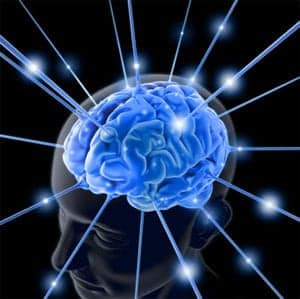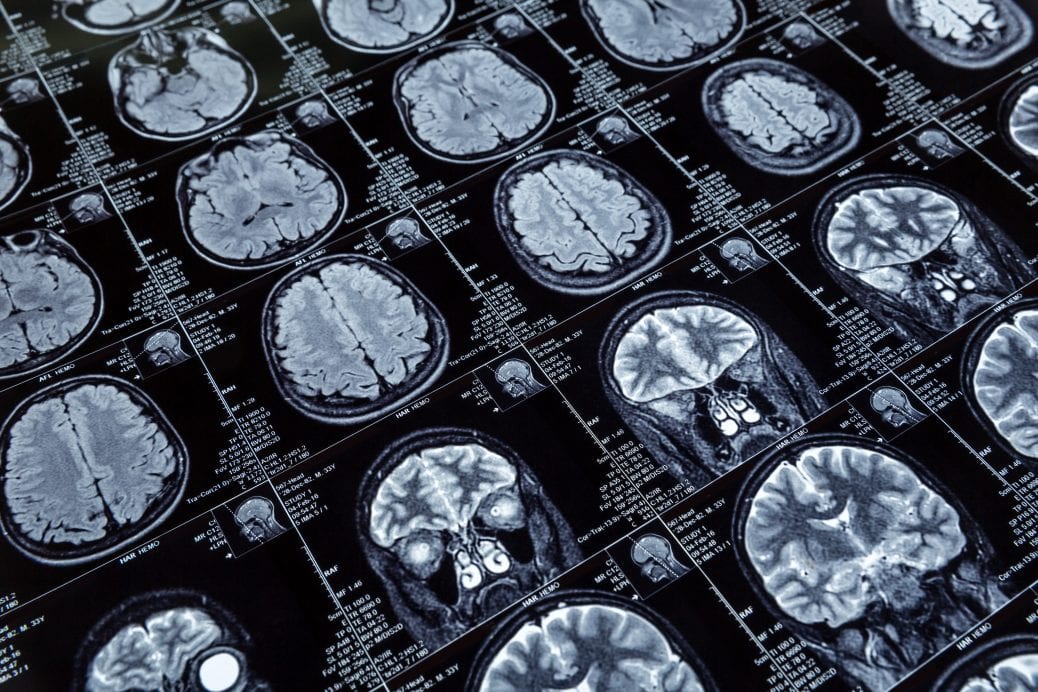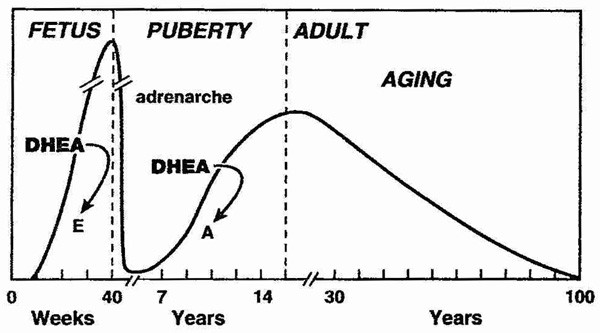 2020 Updates. Several papers and reviews of interest examining the data and possible mechanisms of how creatine is a potential benefit to Traumatic Brain Injury (TBI) as well as being generally neuro-protective worth reading:
2020 Updates. Several papers and reviews of interest examining the data and possible mechanisms of how creatine is a potential benefit to Traumatic Brain Injury (TBI) as well as being generally neuro-protective worth reading:
Potential for use of creatine supplementation following mild traumatic brain injury
Another review just published – Beyond muscle: the effects of creatine supplementation on brain creatine, cognitive processing, and traumatic brain injury – follows below.
Finally a very important paper just published looked directly at the brains of NFL players using magnetic resonance spectroscopy and found that In symptomatic former NFL players “… there was a direct effect between repetitive head impacts (RHI) and reduced cellular energy metabolism (i.e., lower creatine).”
This is the first study to find a direct correlation with severity of RHI/TBI and cellular energy and creatine status I’m aware of and combined with additional emerging data that continues to mount in favor of creatine being beneficial to a wide range of brain insults. It should be noted however that cause and effect can’t be established by that brain scan study.
Traumatic Brain Injury (TBI) has been getting a great deal of attention recently due to vets, NFL, Combat sports, etc, and the DOD identified creatine as a nutrient of interest for TBI over a decade ago for military populations yet little follow up far as I know.
Also below, a recent study looking at creatine and TBI in adolescents, and suggest that creatine is highly neuro-protective with both acute (TBI) and chronic injury. Taken alone, this study is not impressing being a Open Label/Pilot Study, but when added to the growing lit showing the various brain related benefits of creatine posted on this page and elsewhere on this site, it’s a “no brainer” (bad pun intended!) to use in my view for a wide range of potential benefits, most of which are covered on this site.
To be sure, more data is needed to be definitive as to the potential benefits of creatine specific to TBI, what is exists is very compelling and growing rappidly.
A magnetic resonance spectroscopy investigation in symptomatic former NFL players
2020 Oct;14(5):1419-1429.
Abstract
The long-term neurologic consequences of exposure to repetitive head impacts (RHI) are not well understood. This study used magnetic resonance spectroscopy (MRS) to examine later-life neurochemistry and its association with RHI and clinical function in former National Football League (NFL) players. The sample included 77 symptomatic former NFL players and 23 asymptomatic individuals without a head trauma history.
Participants completed cognitive, behavior, and mood measures. N-acetyl aspartate, glutamate/glutamine, choline, myo-inositol, creatine, and glutathione were measured in the posterior (PCG) and anterior (ACG) cingulate gyrus, and parietal white matter (PWM). A cumulative head impact index (CHII) estimated RHI. In former NFL players, a higher CHII correlated with lower PWM creatine (r = -0.23, p = 0.02). Multivariate mixed-effect models examined neurochemical differences between the former NFL players and asymptomatic individuals without a history of head trauma.
PWM N-acetyl aspartate was lower among the former NFL players (mean diff. = 1.02, p = 0.03). Between-group analyses are preliminary as groups were recruited based on symptomatic status. The ACG was the only region associated with clinical function, including positive correlations between glutamate (r = 0.32, p = 0.004), glutathione (r = 0.29, p = 0.02), and myo-inositol (r = 0.26, p = 0.01) with behavioral/mood symptoms. Other positive correlations between ACG neurochemistry and clinical function emerged (i.e., behavioral/mood symptoms, cognition), but the positive directionality was unexpected.
All analyses controlled for age, body mass index, and education (for analyses examining clinical function). In this sample of symptomatic former NFL players, there was a direct effect between RHI and reduced cellular energy metabolism (i.e., lower creatine). MRS neurochemicals associated with neuroinflammation also correlated with behavioral/mood symptoms
Abstract
Background:
There has been an enormous focus on the discovery and development of neuroprotective agents that might have clinical relevance after traumatic brain injury (TBI). Based on experimental facts, we studied administration of creatine to patients with TBI.
Methods:
A prospective, randomized, comparative, open-labeled pilot study of the possible neuroprotective effect of creatine was performed on 39 children and adolescents, aged between 1 to 18 years old, with TBI. The creatine was administered for 6 months, at a dose of 0.4 gr/kg in an oral suspension form every day. For categorical variables, we used the χ2 test to identify differences between controls and cases. Statistical significance was defined as a p value <0.05 and not statistically significant if p value >0.1.
Results:
The administration of creatine to children with TBI improved results in several parameters, including duration of post-traumatic amnesia (PTA), duration of intubation, intensive care unit (ICU) stay, disability, good recovery, self care, communication, locomotion, sociability, personality/behavior and neurophysical, and cognitive function. Significant improvement was recorded in the categories of Cognitive (p < 0.001), personality/behavior (p < 0.001), Self Care (p = 0.029), and communication (p = 0.018) aspects in all patients. No side effects were seen because of creatine administration.
Conclusion:
Preliminary data suggest that the administration of creatine may be beneficial to patients with traumatic brain injury.
Beyond muscle: the effects of creatine supplementation on brain creatine, cognitive processing, and traumatic brain injury.
Eur J Sport Sci. 2019 Feb;19(1):1-14.
Abstract
Another excellent review paper that strongly supports the potential benefits of creatine in TBI is:Potential for use of creatine supplementation following mild traumatic brain injuryJ. Concussion. 2017 Jun; 2(2):
There is significant overlap between the neuropathology of mild traumatic brain injury (mTBI) and the cellular role of creatine, as well as evidence of neural creatine alterations after mTBI. Creatine supplementation has not been researched in mTBI, but shows some potential as a neuroprotective when administered prior to or after TBI. Consistent with creatine’s cellular role, supplementation reduced neuronal damage, protected against the effects of cellular energy crisis and improved cognitive and somatic symptoms. A variety of factors influencing the efficacy of creatine supplementation are highlighted, as well as avenues for future research into the potential of supplementation as an intervention for mTBI. In particular, the slow neural uptake of creatine may mean that greater effects are achieved by pre-emptive supplementation in at-risk groups.
Will Brink is the owner of the Brinkzone Blog. Will has over 30 years experience as a respected author, columnist and consultant, to the supplement, fitness, bodybuilding, and weight loss industry and has been extensively published. Will graduated from Harvard University with a concentration in the natural sciences, and is a consultant to major supplement, dairy, and pharmaceutical companies.
His often ground breaking articles can be found in publications such as Lets Live, Muscle Media 2000, MuscleMag International, The Life Extension Magazine, Muscle n Fitness, Inside Karate, Exercise For Men Only, Body International, Power, Oxygen, Penthouse, Women’s World and The Townsend Letter For Doctors.
He’s also been published in peer reviewed journals.
Will is the author of the popular e-books, both accompanied by private members forum access , Bodybuilding Revealed & Fat Loss Revealed.
You can also buy Will’s other books on Amazon, Apple iBook, and Barnes and Noble.






Hi Will,
I see there is a new creatine out there that claims to dissolve 100% in water.
Now I know that you recommend creapure and to put it in warm to hot water.
I looked on your grave yard list and didn’t see this new one
It’s made by a company called: Gains in Bulk The creatine is Instantized creatine .
I saw it on facebook. Do you know anything about this creatine ?
Thank you
Lewis
Without an actual name, obviously I can’t comment. Looked in the graveyard? https://brinkzone.com/the-creatine-grave-yard/
If you look at the label it says “Instantized creatine monohydrate.” I don’t know what they even mean by that. Maybe they’re referring to micronized. Micronized makes it easier to mix due to smaller particle size, but if added to warm liquids, a moot issue really. I’m not aware of any unique process to Instantize CM. They also don’t appear to be using Creapure as their source.
I have a brain injury and the same. Most likely CTE is my future. Can you tell me the best creatine to use.. And how much would suggest a day. Ty